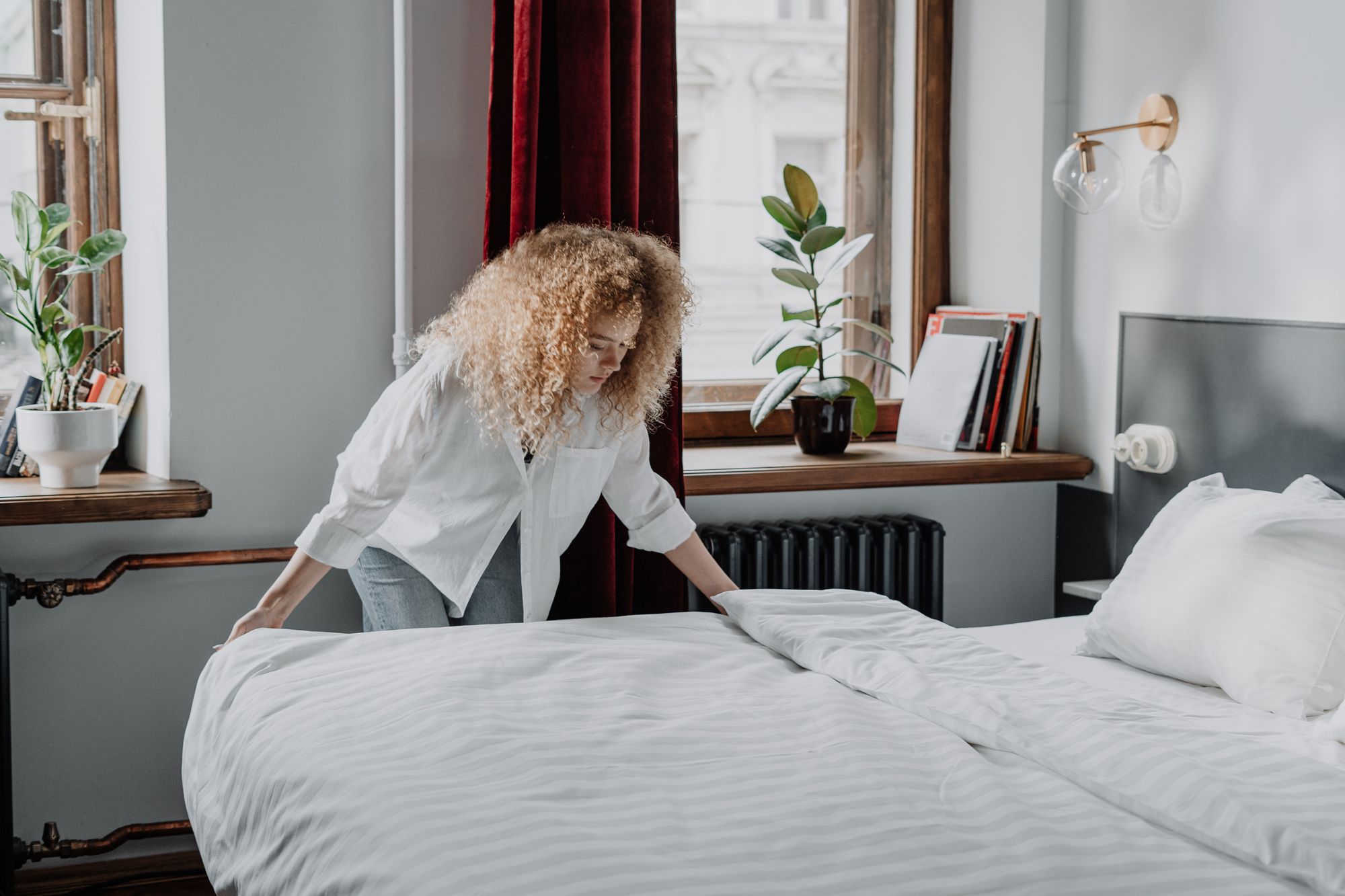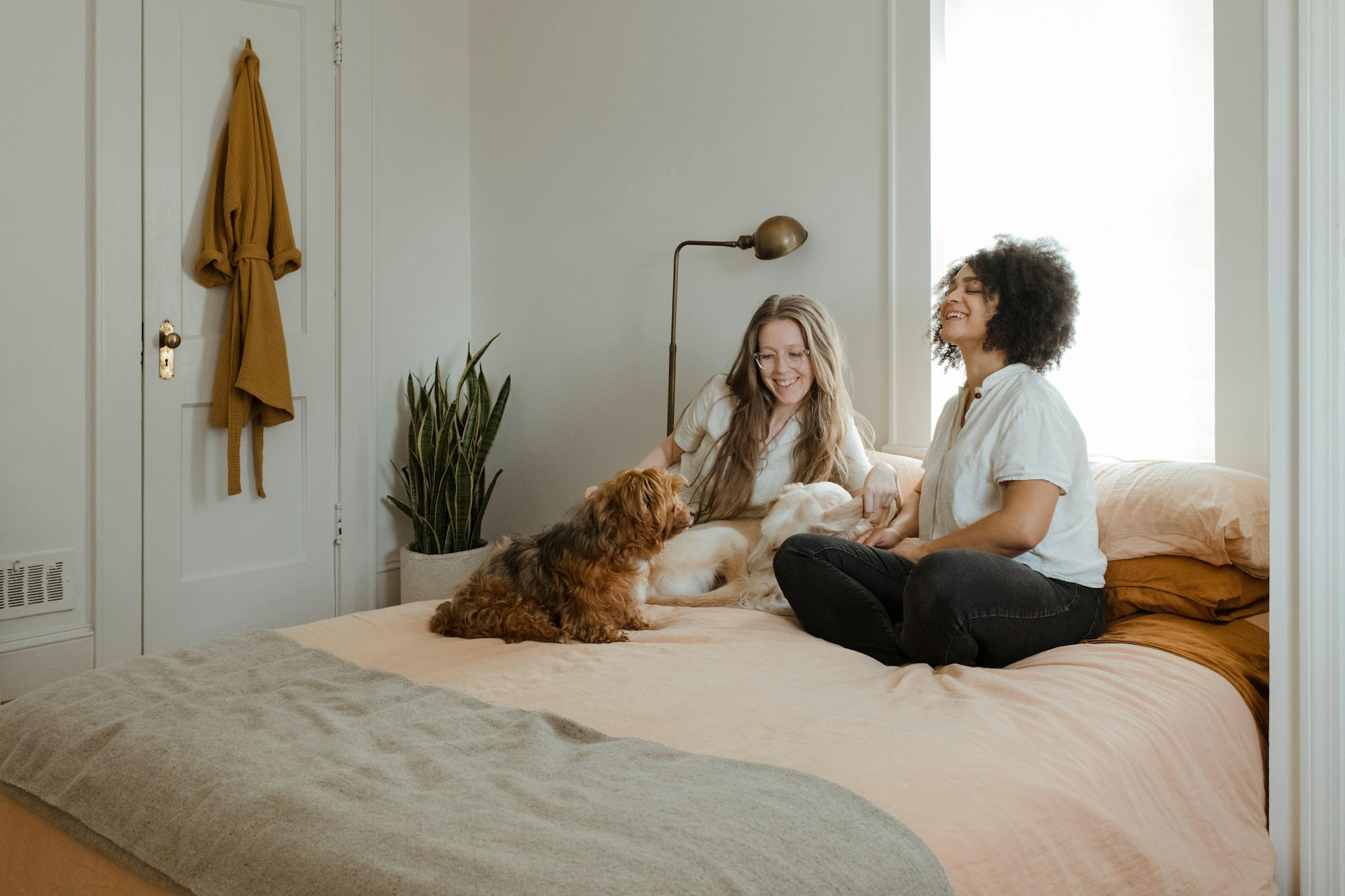House sitting is becoming an increasingly popular way to travel, save money, and have peace of mind knowing that your home and pets are being taken care of while you're away. Finding the perfect house sitter, however, can be a daunting task. In this complete guide to finding the perfect house sitter, we'll provide you with everything you need to know to ensure a successful house sitting experience.
House Sitting 101: The Complete Guide to Finding the Perfect House Sitter
Step 1: Determine Your Needs

Before you start looking for a house sitter, it's important to determine your needs. Ask yourself questions such as:
- What dates will I be away?
- What tasks will the house sitter be responsible for?
- What kind of pets do I have, and what kind of care will they need?
- Will the house sitter have access to a car?
- What kind of experience am I looking for in a house sitter?
By answering these questions, you'll be able to create a clear job description for your house sitter.
Step 2: Find Potential House Sitters

Once you've determined your needs, it's time to start looking for potential house sitters. There are several ways to find house sitters, including:
- House Sitters Websites: Such websites are dedicated to connecting homeowners with trustworthy house sitters. You can create a listing for your house sitting opportunity and browse through potential sitters.
- Personal Networks: Ask your friends, family, and neighbors if they know of anyone who might be interested in house sitting for you.
- Social Media: Post about your house sitting opportunity on social media platforms such as Facebook and Twitter.
- Local Organizations: Check with local animal shelters or pet-sitting services to see if they have any recommendations.
Step 3: Conduct Interviews

Once you've found potential house sitters, it's time to conduct interviews. This will give you a chance to get to know the candidates and ensure that they're a good fit for your needs. During the interview, be sure to ask questions such as:
- Have you house sat before? If so, what kind of tasks were you responsible for?
- Do you have experience caring for pets? If so, what kind of pets have you cared for?
- What is your availability during the time I'll be away?
- Can you provide references?
Step 4: Check References
Before making a final decision, be sure to check the house sitter's references. Ask for at least two references and contact them to ask about the house sitter's reliability, trustworthiness, and overall experience.
Step 5: Create a House Sitting Agreement

Once you've selected a house sitter, it's important to create a house sitting agreement. This agreement should include details such as:
- The dates of the house sitting arrangement
- The tasks the house sitter will be responsible for
- The compensation for the house sitter (if any)
- Any rules or guidelines for the house sitter to follow
Be sure to review the agreement with your house sitter before you leave to ensure that everyone is on the same page.
Step 6: Prepare Your Home

Before you leave, it's important to prepare your home for the house sitter. This includes:
- Cleaning the house and making sure it's in good condition
- Making sure the house sitter has access to all necessary items (such as keys, alarm codes, and pet supplies)
- Creating a list of emergency contacts and instructions for the house sitter to follow in case of an emergency
Step 7: Stay in Touch
While you're away, be sure to stay in touch with your house sitter. This can be as simple as sending an occasional email or text message to check in. It's also a good idea to provide your house sitter with a way to reach you, so do include your contact information such as your phone number. If you are frequently in need of a house sitter due to vacation or business travel purposes, we recommend getting a second phone number to keep all house sitting communications separate from your personal life. Phoner offers a great phone system for that.
Top FAQs About House Sitting
What Is the Average Cost of House Sitting?
The average cost of house sitting can vary depending on several factors such as location, duration, and the specific services being offered by the house sitter. Generally, house sitters may charge anywhere from $25 to $100 per day or more, depending on their level of experience and the tasks they are expected to perform.
However, some house sitters may offer their services for free or at a reduced rate in exchange for lodging or other benefits such as access to a swimming pool or a car. It's important to discuss expectations and costs with potential house sitters before hiring them to ensure that both parties are clear on the terms and costs of the arrangement.
Does House Sitting Mean Staying Overnight?
House sitting can involve staying overnight, but it doesn't necessarily have to. The specific responsibilities and arrangements of a house sitting job can vary depending on the homeowner's needs and preferences, as well as the agreement made between the homeowner and the house sitter. Some house sitting jobs may require the sitter to stay overnight in the home, while others may only require periodic visits to check on the property and any pets or plants. Ultimately, it depends on the specific terms of the house sitting arrangement.
Do You Tip a House Sitter?
Whether or not to tip a house sitter is a personal decision that depends on your preferences and the specific circumstances of the house sitting arrangement. In some cases, homeowners may choose to offer a small gift or gratuity to express appreciation for the house sitter's services. However, this is not typically expected or required, especially if the house sitter is being compensated for their time and responsibilities. Ultimately, the decision to tip a house sitter is up to you, and should be based on your own discretion and the quality of service provided.
What Should I Leave for a House Sitter?
If you're planning to have a house sitter while you're away, it's a good idea to leave some basic supplies and information to ensure their comfort and safety. Here are some things you may want to consider leaving for your house sitter:
- House keys: Make sure your house sitter has access to your home and any necessary keys or codes.
- Emergency contact information: Leave a list of emergency contacts, including your own phone number, a neighbor or friend's phone number, and the contact information for any relevant emergency services (such as the police or fire department).
- Pet supplies: If you have pets, make sure to leave any necessary supplies (such as food, water, and litter) and detailed instructions for their care.
- Cleaning supplies: Provide your house sitter with basic cleaning supplies (such as a vacuum, mop, and cleaning products) to help them keep the home clean and tidy.
- Wi-Fi information: Leave the login information for your home Wi-Fi network so your house sitter can stay connected.
- Household instructions: Provide clear instructions for things like how to use the dishwasher, washing machine, and other appliances, as well as any other important details about the home (such as how to use the heating and cooling systems).
- Basic food and beverages: Leave some basic supplies like coffee, tea, milk, bread, and fruit to help your house sitter feel welcome and comfortable.
By leaving these items and information for your house sitter, you can help ensure that they have a comfortable and enjoyable stay while you're away.
Should You Buy Groceries for a House Sitter?
Whether or not to buy groceries for a house sitter is a personal decision that depends on the specific arrangement made between the homeowner and the house sitter. In some cases, homeowners may choose to provide groceries for the house sitter as part of the house sitting agreement. This can be a nice gesture and can help ensure that the house sitter is comfortable and has everything they need during their stay.
However, providing groceries is not always necessary or expected, especially if the house sitter is being compensated for their time and responsibilities. If you do decide to provide groceries, it's a good idea to discuss this with the house sitter in advance to determine their preferences and any dietary restrictions or allergies. Ultimately, the decision to buy groceries for a house sitter should be based on the specific circumstances of the house sitting arrangement and your own personal preferences.
How Old Should a House Sitter Be?
There is no set age requirement for a house sitter, as the specific qualifications and requirements for the job can vary depending on the needs and preferences of the homeowner. In general, a house sitter should be responsible, reliable, and trustworthy, and should have the necessary skills and experience to take care of the homeowner's property and any pets or plants.
Some homeowners may prefer to hire an older, more experienced house sitter, while others may be comfortable hiring a younger person or someone with less experience. Ultimately, the decision of who to hire as a house sitter should be based on the specific needs and preferences of the homeowner, as well as the qualifications and experience of the potential candidates.
How Do You Interview a House Sitter?
Interviewing a potential house sitter is an important part of the process to ensure that you find someone who is reliable, responsible, and trustworthy. Here are some tips for conducting a successful house sitter interview:
- Ask about their experience: Begin by asking the potential house sitter about their past experience in house sitting or other relevant jobs, such as pet care or plant care. Ask for references and check them to ensure that the candidate has a track record of being responsible and reliable.
- Discuss their availability: Make sure that the house sitter is available during the time that you need them, and discuss any potential conflicts or scheduling issues in advance.
- Outline your expectations: Be clear about your expectations for the house sitter, including any specific duties or responsibilities they will have (such as taking care of pets, watering plants, or collecting mail). Make sure that the candidate is comfortable with these tasks and understands what is expected of them.
- Discuss compensation: Talk about compensation for the house sitting job, including any pay or other benefits that you will offer. Be clear about how the house sitter will be paid and when they can expect to receive payment.
- Ask about their communication style: Discuss how often and in what format you would like the house sitter to communicate with you while you are away. This could include daily check-ins or regular updates via email or text message.
- Get a feel for their personality: Finally, make sure that you feel comfortable with the potential house sitter and that they seem trustworthy and responsible. You may also want to discuss any specific concerns or issues you have with them and see how they respond.
By following these tips, you can conduct a successful interview with a potential house sitter and find someone who is a good fit for your needs and preferences.
Conclusion
Employing a housesitter allows homeowners to travel with peace of mind, knowing their home and belongings are being looked after, and that their pets are being cared for in their absence. With a little bit of effort and research, you can find the perfect housesitter to take care of your home too.

 4.5/5 on App Store
4.5/5 on App Store





